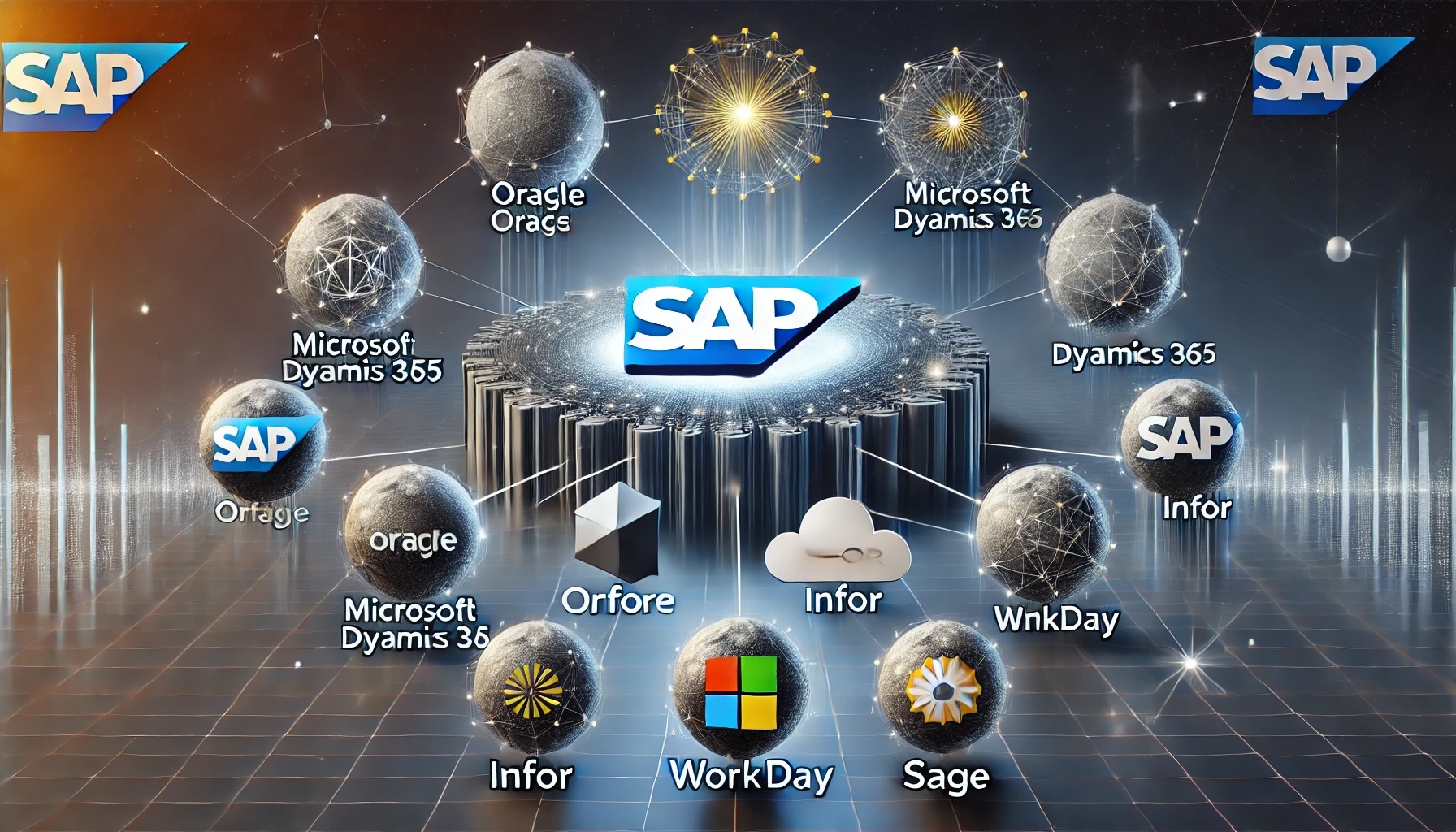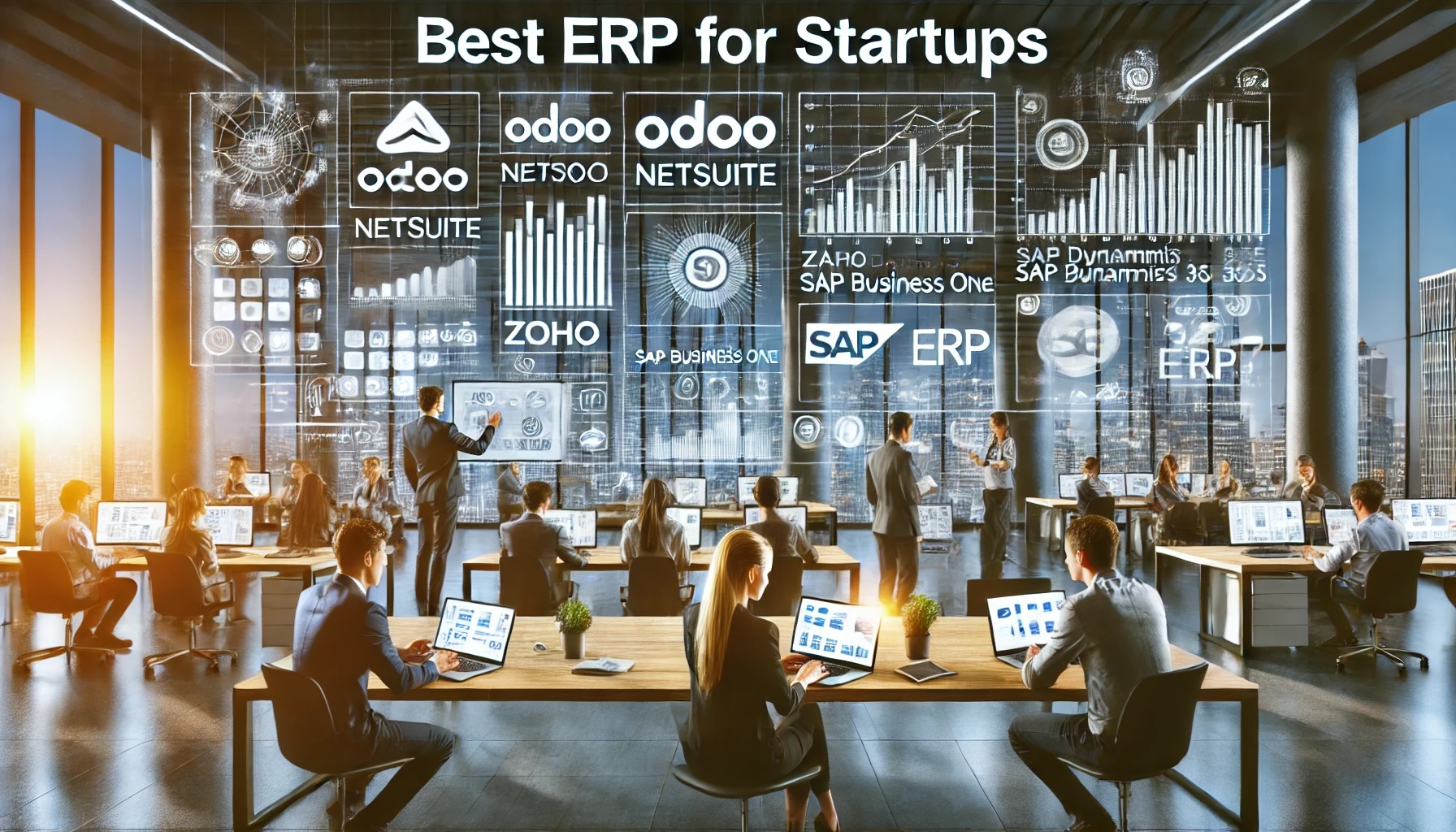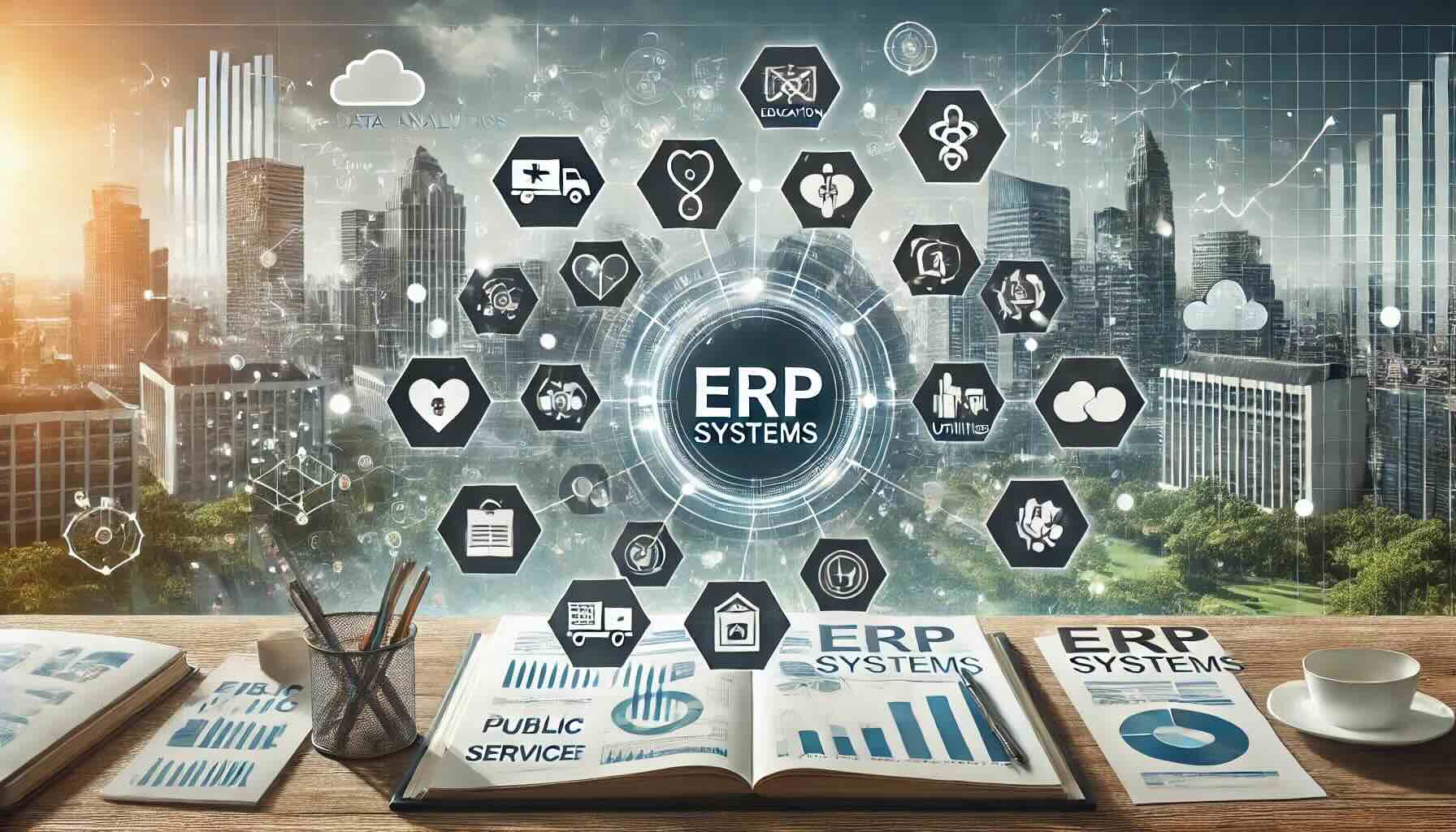SAP Competitors: Who They Are and How They Compare

SAP, a titan in the enterprise software landscape, has long been the standard-bearer for enterprise resource planning (ERP) systems. With a wide array of solutions that address everything from financial management to supply chain logistics, SAP is a favored choice for many large organizations. However, it operates in a highly competitive environment where several other players offer compelling alternatives. In this article, we’ll explore SAP and its top competitors, highlighting their strengths, weaknesses, and what makes them unique.
SAP: The Benchmark in ERP Solutions
Overview
SAP, headquartered in Germany, is one of the most established names in enterprise software, particularly in ERP systems. SAP’s flagship product, SAP S/4HANA, is an integrated suite that offers businesses comprehensive tools for financials, operations, supply chain, and customer relationship management. SAP has a strong presence in nearly every industry, from manufacturing to healthcare, and continues to innovate, especially in the areas of AI, machine learning, and cloud computing.
Strengths
- Comprehensive Functionality: SAP offers a vast range of features that cover almost every aspect of business operations, making it a one-stop-shop for many enterprises.
- Industry-Specific Solutions: SAP provides tailored solutions for various industries, ensuring that businesses get tools that meet their unique requirements.
- Global Reach and Support: SAP has a well-established global presence with extensive support networks, making it a reliable partner for multinational corporations.
- Innovation and Integration: SAP is at the forefront of integrating new technologies like AI and machine learning into its ERP systems, enhancing predictive analytics, and automation capabilities.
Weaknesses
- Complexity and Cost: SAP’s solutions are often seen as complex and expensive to implement, requiring significant investment in both time and resources.
- Implementation Time: The implementation process for SAP can be lengthy and resource-intensive, which can be a drawback for companies looking for quicker deployments.
- User Experience: Although powerful, SAP’s systems have been criticized for being less user-friendly compared to some of its competitors, particularly in terms of interface and ease of navigation.
1. Oracle
Overview
Oracle is one of SAP’s closest competitors, offering a broad suite of cloud-based applications that span ERP, customer relationship management (CRM), human capital management (HCM), and more. Oracle ERP Cloud is particularly well-regarded for its robust features and integration capabilities.
Strengths
- Integrated Cloud Solutions: Oracle’s cloud-first approach offers scalable, integrated solutions that are ideal for both small businesses and large enterprises.
- Database Expertise: Oracle’s strong database management capabilities provide seamless integration with its ERP products, enhancing data management and analytics.
- Advanced Technologies: Oracle leads in incorporating AI, machine learning, and blockchain into its ERP systems, offering advanced automation and analytics.
Weaknesses
- Complexity and Customization: Oracle’s systems can be complex to deploy and may require significant customization, which can be costly and time-consuming.
- Higher Costs: Oracle’s pricing is generally on the higher end, which might be prohibitive for smaller businesses or those with tighter budgets.
2. Microsoft Dynamics 365
Overview
Microsoft Dynamics 365 combines ERP and CRM capabilities in a unified platform, making it a strong competitor in the mid-market and enterprise segments. The platform’s seamless integration with other Microsoft products is one of its key selling points.
Strengths
- Seamless Microsoft Integration: Dynamics 365 integrates perfectly with Microsoft’s suite of products, including Office 365 and Azure, providing a cohesive ecosystem.
- User-Friendly Interface: The platform is known for its intuitive interface, which reduces the learning curve and enhances user adoption.
- Flexibility in Deployment: Microsoft Dynamics 365 offers both cloud-based and on-premises deployment options, giving businesses flexibility in how they use the software.
Weaknesses
- Industry-Specific Gaps: While comprehensive, Dynamics 365 may not offer the same depth of industry-specific features that SAP or Oracle provide.
- Customization Challenges: Extensive customization can be challenging and often requires third-party vendors or additional IT support.
3. Infor
Overview
Infor specializes in providing industry-specific ERP solutions, particularly for sectors like manufacturing, healthcare, and retail. Infor’s CloudSuite, which is built on the company’s in-house cloud platform, is designed to meet the unique needs of different industries.
Strengths
- Industry-Specific Solutions: Infor’s deep focus on industry-specific solutions allows businesses to deploy ERP systems that are closely aligned with their operational needs.
- User Experience: The platform offers a user-friendly experience with advanced data visualization tools and intuitive dashboards.
- Strong Cloud Capabilities: Infor has made significant investments in cloud technology, offering flexible and scalable ERP solutions.
Weaknesses
- Brand Awareness: Infor is less well-known compared to SAP and Oracle, which can be a disadvantage in competitive situations.
- Integration Difficulties: Some businesses have reported challenges when integrating Infor’s systems with non-Infor products.
4. Workday
Overview
Workday is a leading provider of human capital management (HCM) software, but it has also made significant strides in the ERP market, particularly in financial management and enterprise planning.
Strengths
- Superior User Experience: Workday is highly regarded for its user-friendly interface, which simplifies the user experience and encourages employee engagement.
- Rapid Deployment: Workday’s cloud-based ERP solutions are typically quicker to deploy, minimizing disruption during implementation.
- Strength in HCM: Workday excels in HCM and talent management, making it a preferred choice for organizations where these functions are critical.
Weaknesses
- Narrower ERP Focus: Workday’s ERP offerings, while growing, do not yet match the breadth of functionality provided by SAP or Oracle, especially in supply chain management.
- Cost Considerations: The cost of Workday’s subscription model can be high, particularly for larger enterprises with complex needs.
5. Sage
Overview
Sage is a popular choice for small to medium-sized businesses (SMBs) looking for cost-effective ERP solutions. Sage offers a variety of products, ranging from simple accounting tools to more comprehensive ERP systems like Sage X3.
Strengths
- Affordability: Sage’s products are generally more affordable than those of SAP or Oracle, making them accessible to SMBs.
- Ease of Use: Sage’s software is known for its straightforward implementation and user-friendly interfaces, making it ideal for smaller businesses with limited IT resources.
- Excellent Support: Sage provides strong customer support, particularly for businesses that may not have extensive IT departments.
Weaknesses
- Limited Scalability: Sage’s solutions may not scale as effectively as those of SAP or Oracle, making them less suitable for rapidly growing businesses or large enterprises.
- Customization Constraints: While easy to use, Sage’s products offer fewer customization options, which can be a limitation for businesses with specific needs.
Conclusion
SAP remains a dominant force in the ERP market, offering unmatched depth and breadth of functionality, especially for large, complex organizations. However, its competitors like Oracle, Microsoft Dynamics 365, Infor, Workday, and Sage provide strong alternatives, each with unique strengths that cater to different business needs. Oracle and Microsoft Dynamics 365 are powerful options for enterprises, particularly those seeking robust cloud solutions and seamless integration with existing tools. Infor and Workday excel in industry-specific and HCM solutions, while Sage provides an affordable, user-friendly choice for SMBs. Choosing the right ERP system involves careful consideration of your business’s specific requirements, ensuring that the selected platform not only addresses current challenges but also supports future growth and innovation.
To compare these ERP solutions and many more, you can use our new AI-powered Compare ERP tool. It’s free to use and you get a guaranteed discount on your first year’s licence fees with a referral from Compare ERP.









